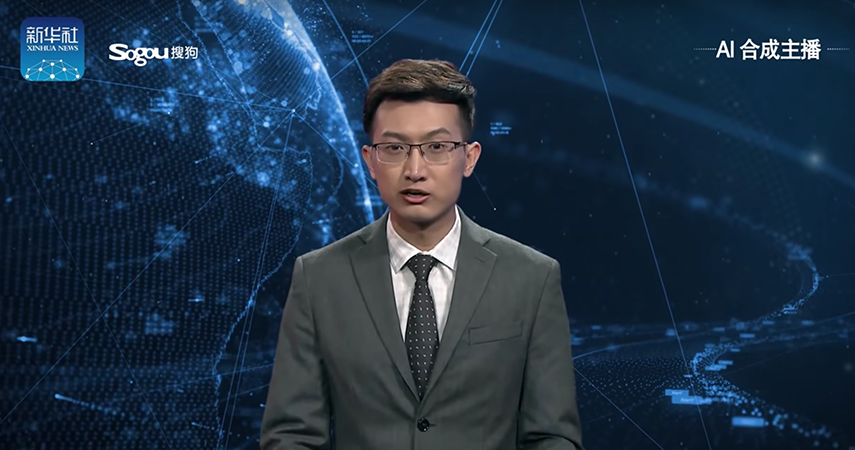Will AI make news reporters a thing of the past?

Last year, China’s state-run news agency Xinhua announced the latest addition to its team of news reporters.
Qiu Hao, dressed in a pinstripe suit and red tie, made his first broadcast in November.
However, unlike his colleagues, the news reporter is not real.
“I am the Chinese AI anchor who just joined Xinhua news agency today,” he said, “my appearance and voice are based on Xinhua news reporter Qiu Hao. But I never need to rest. I offer more than non-stop service 24 hours a day, 365 days a year.”
Developed in collaboration with Chinese search engine Sogou, the news anchor uses machine learning to simulate the voice, gestures and movements of human broadcasters.
The artificial intelligence reporter revealed in a broadcast that he was created by “face recognition, face modelling, speech synthesis, deep learning and other intelligence techniques.”
The real Qiu Hao, on which the digital news reporter is modelled, said that he has mixed feelings upon learning about it. He said that he was curious and intrigued, yet still wondered if he could be replaced.
“I admit its accuracy and efficiency are way better than me,” he said at the time. However, he believes he has the edge over his digital counterpart, due to his own “richer emotions” and “a more realistic human voice”.

Not content with just one digital news anchor, Xinhua then revealed that they were working on more.
At the World Internet Conference in the city of Wuzhen, Xinhua debuted Zhang Zhow, who broadcasts in English.
This February, the news agency then announced the world’s first female AI news reporter, Xin Xiaomeng.
To date, the AI-powered news reporters have delivered thousands of broadcasts, clocking tens of thousands of minutes behind the desk, all of which the AI news anchors use to improve through deep learning models, developed by some of China’s most innovative AI researchers.
READ MORE: China begins 6G research and development
China is home to some of the largest tech companies in the world, consistently demonstrating fast growth in artificial intelligence, big data, 5G, Internet of Things and robotics.
However, some industry commentators are concerned by the use of some of the technologies being deployed by state-owned enterprises. Facial and gait recognition is being used nation-wide to monitor citizens, and these SOEs also benefit from preferential government treatment, affording them access to over 1 billion consumers, with untold caches of data.
By leveraging these advantages, the nation’s SOEs are cementing China’s position as a world leader in science and technology research and development, following government roadmaps such as ‘New Generation of Artificial Intelligence Development Plan’ and ‘Made in China 2025’.
Could China claim a global monopoly on technological standards, should their innovation continue to outpace the west? And will their artificial intelligence-powered news reporters one day render their human colleagues obsolete?